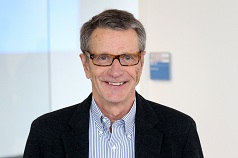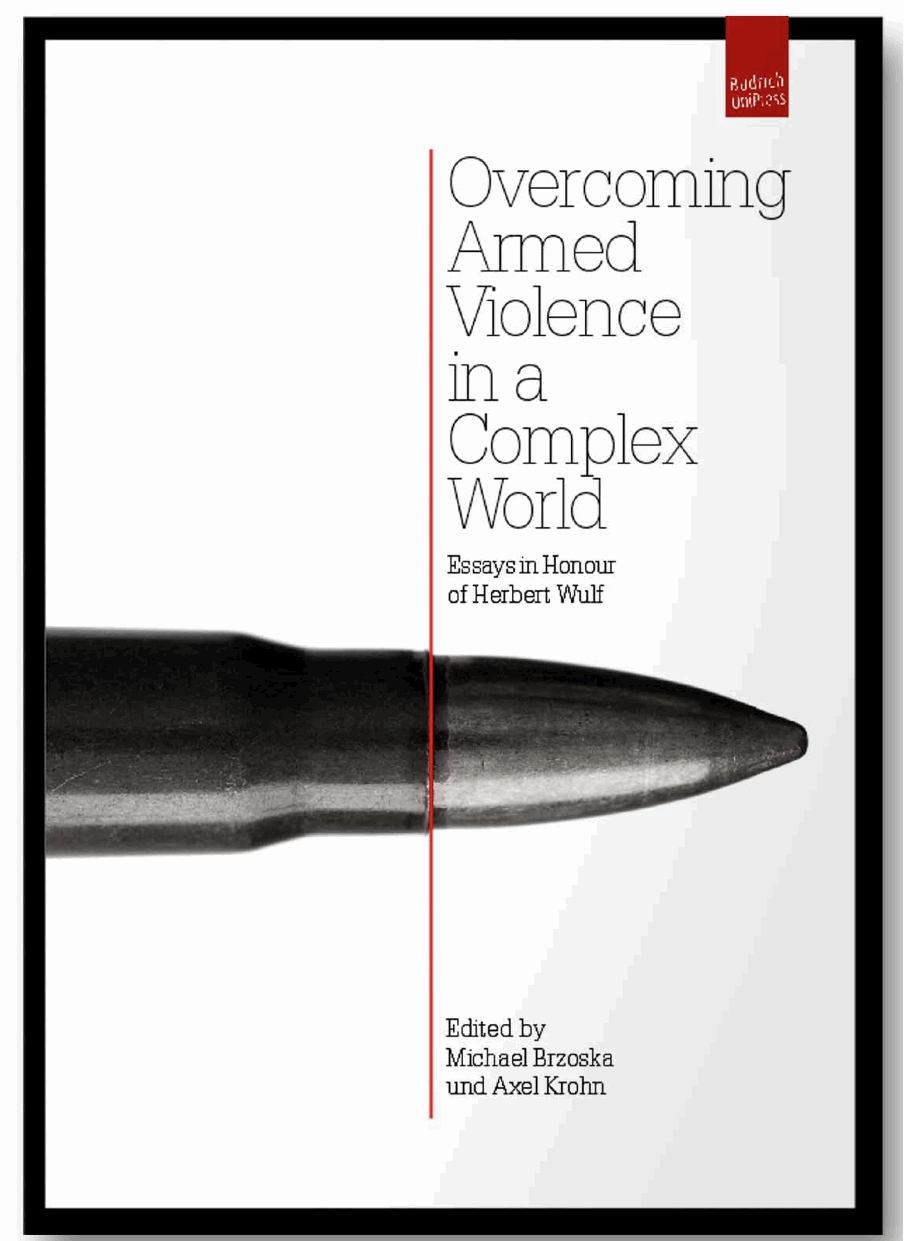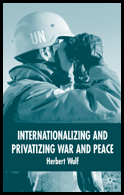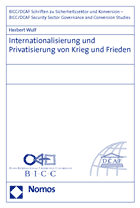 Herbert Wulf was Director of the Bonn International Center for Conversion (BICC) from its foundation in 1994 until 2001. He is presently a Senior Fellow at BICC and an Adjunct Senior Researcher at the Institute for Development and Peace, University of Duisburg/Essen where he was previously a Deputy Director and where he was a Senior Expert Fellow in 2012/2013 at the Käte Hamburger Kolleg (Centre for Global Cooperation Research).
Herbert Wulf was Director of the Bonn International Center for Conversion (BICC) from its foundation in 1994 until 2001. He is presently a Senior Fellow at BICC and an Adjunct Senior Researcher at the Institute for Development and Peace, University of Duisburg/Essen where he was previously a Deputy Director and where he was a Senior Expert Fellow in 2012/2013 at the Käte Hamburger Kolleg (Centre for Global Cooperation Research). He was a visiting scholar at the Australian Centre for Peace and Conflict Studies at Queensland University, Brisbane, Australia in 2007 and 2010; this centre is succeeded now by PaCSIA - Peace and Conflict Studies Institute Australia. He is a Research Affiliate at the National Centre for Peace and Conflict Studies, University of Otago, New Zealand. Herbert Wulf has served as a consultant to various international organizations, among them the Parliament and the Commission of the European Union as well as to the United Nations Department for Disarmament Affairs, the Human Development Report of UNDP. He served as consultant to the United Nations Development Programme in Pyongyang, Democratic Peoples’ Republic of Korea on capacity building in disarmament in 1991 and between 2002 and 2007. He served as co-chair of a Reflection Group on the 'Monopoly of the Use of Force 2,0', organised by the Friedrich Ebert Foundation, Berlin.
In his previous research positions he was a Project Leader at the Stockholm International Peace Research Institute and at the Institute for Peace Research and Security Policy at the University of Hamburg.
The government of North-Rhein Westphalia, Germany awarded professorship to Herbert Wulf in 2002. He studied at the Universities of Cologne (economics), Mannheim and Hamburg (sociology) and wrote his dissertation at the Free University of Berlin in international relations. He taught at several Universities in Germany, Scandinavia and the United States. Prior to his work in research, he was Director of the German Volunteer Service in India. In February 2007 the Center for Conflict Studies of the Philipps-University in Marburg, Germany awarded the price for peace and conflict studies to Herbert Wulf. awards
His research fields include governance, with UN peacekeeping and the future of the monopoly of violence, internationalization and privatization of conflict and the privatization of the armed forces, arms production, arms trade, arms industry conversion and arms control and disarmament, especially within the UN system. A particular regional interest relates to India (in development cooperation theory) and North Korea (the nuclear ambitions).

Essays in Honour of Herbert Wulf. "Overcoming Armed Violence in a Complex World", edited by Michael Brzoska and Axel Krohn. Budrich UniPress. 2009
Efforts to prevent and manage armed violence face new challenges and opportunities. While the number of wars has declined, armed violence remains a threat to the lives of many people. Military spending is reaching record levels and new dangers, such as climate change, are on the horizon.
Over several decades, Herbert Wulf has provided important contributions to the analysis of demilitarization, military conversion and peacebuilding. The authors in this volume address topics and ideas developed by Herbert Wulf which remain relevant to current efforts to reduce armed violence. The essays focus on current problems of military conversion and small arms control, the building of institutions for the prevention of armed violence, new forms of security governance and future challenges for the preservation of peace.
Publisher



